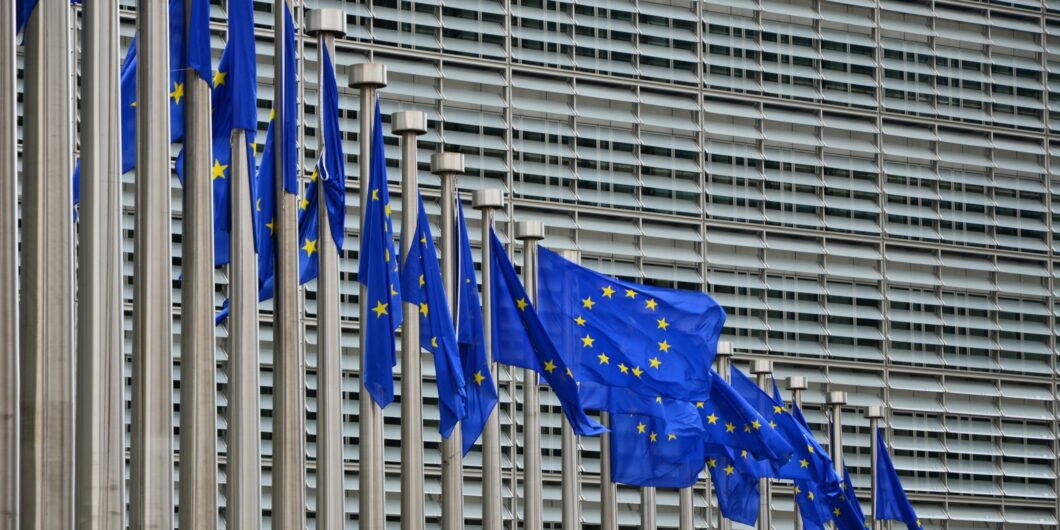The next great Christian university will oppose the combination of modernism and cultural ideology now regnant in the academy.
What Is the Religion of Humanity?
I am grateful to Law & Liberty for commissioning a review of my annotated anthology of the writings of the eminent French political philosopher, Pierre Manent, on an important topic with a striking name, “the religion of Humanity.” I am grateful to Mr. John Kitch for taking the time to read the collection and to pen a generally positive review. His words of praise for Manent and of commendation for me are appreciated. Finally, I would like to thank the editors of Law & Liberty for affording me this opportunity to pen a few words in response.
Manent is a political philosopher. We do not have his type or caliber of political philosopher here in the States, so studying him has its challenges, but also its rewards. A good portion of my introduction consisted of sketching Manent’s conception of political philosophy and retracing his application of it to a new phenomenon, what he, following its original proponent, Auguste Comte, calls “the religion of Humanity.” After the collapse of the Soviet Union, he noticed that a new form and understanding of “democracy” was emerging in Europe. It was linked to, or cast in terms of, a tendentially integrated “humanity” and pitted itself against “nationalism” and national sovereignty. The former had been discredited by Hitler, the latter by History or globalization. Its two lodestars were the autonomous “individual” and a (purportedly) naturally harmonious “Humanity” come-of-age. Manent’s readings of Tocqueville had prepared him to recognize this new form of democratic humanitarianism, while Comte provided its name and indicated its quasi-religious cast.
As the years and decades passed, he tracked its progress and rise to hegemony in the Europe of the European Union. Speeches declared it, deeds did as well. An early sighting was the 1999 aerial bombing of Serbia conducted by American-led NATO in the name of “a right of humanitarian intervention.” Its hyperbolic rhetoric and new justification of force led to a warning from Manent about “the humanitarian temptation,” one of the first entries in the anthology. In it, he warned that “the great danger of contemporary humanitarianism is to habituate people to disdain political reflection, politics themselves and their concrete conditions of existence, as if the affirmation of humanity sufficed unto itself.”
This was not the only phenomenon bespeaking this new attitude and Manent’s 2001 survey of contemporary Europe, A World without Politics?, analyzed some of the more important ones. He also considered it necessary to draw attention to the broader phenomenon in a separate chapter entitled “The Religion of Humanity.” Europeans were increasingly succumbing to the temptation, and a new “empire”—a humanitarian EU—was being constructed.
By 2010, the new emperor had established his imperium. In a book that recapitulated his intellectual itinerary and presented his views on the current state of Europe, Seeing Things Politically, he warned his fellow Europeans, in provocative but precise terms, that
[t]he religion of Humanity, which is a veil over our eyes and a down comforter to our hearts, draws its credibility from political conditions it is itself incapable of creating. Europeans may think that they are natural citizens of humanity because they have no need to defend themselves, because they do not need to take responsibility for their own defense. Europe as a whole can conceive itself as the avante-garde of a pacified humanity because the United States is still taking responsibility for the defense of Europe. The European religion of Humanity, then, rests ultimately on American force. Europeans are now living on three things: the inertia of the national form, on what I call the religion of Humanity, and on American protection. This does not constitute a vigorous political order, or one likely to last.
Ouch.
There is no need to recapitulate the entire itinerary of events and analyses retraced in the anthology. Suffice it to say that, in every way possible, it makes clear that Manent’s perspective is that of a political philosopher and that there is a general chronological trajectory to the collection. Since I did not find these unifying features in the review, I thought it important to bring them to the reader’s attention.
In summary, one could say that, according to Manent, in official Europe—Brussels, Strasburg, and Rome—the zõon politikón and the imago Dei confront the same insidious Enemy, proponents of a vision of a self-contained, self-validating Humanity.
The greatest omission was a discussion of what exactly Manent means by “the religion of Humanity.” For the busy reader who can only read one item in the collection, I would recommend Manent’s short foreword to Danial J. Mahoney’s book, The Idol of Our Age, where he provides his own précis. To begin with, it is a “ruling opinion,” a way of construing and regarding humanity and the human world, and, as such, a fit object for political philosophical analysis. Manent characterizes it both by what it affirms (e.g. “a virtually unified Humanity”) and what it denies and uses the categories of political philosophy—a lexicon to which he has contributed significantly—to take its measure. These include classical categories such as “the universal and the particular,” “the political animal,” “speech and deed,” “political regime,” and new coinages such as “mediation,” “political form,” and “the political condition of humanity.” All help to expose the illusions and folly of the humanitarian way of regarding human beings and the human world.
This is the basic dynamic of the book: a certain way of looking politically at the world espies and critiques another way that eschews the political realities of the world. Everything in it fits into this dynamic. Or almost everything. For the ersatz religion of Humanity also apes and insidiously erodes its original, Catholic Christianity. Manent is a Catholic as well as a political philosopher, so he deemed it his duty to warn his coreligionists in a special way about “the humanitarian temptation.” Mere human compassion is not Christian charity, a self-validating Humanity is the antithesis of Christianity’s view of fallen Adam’s sons and daughters. Humanity cannot be unified absent the divine-human Mediator, and his chosen instrument of mediation, the Church.
This contrast informs Manent’s critique of Pope Francis’s reading of the parable of the good Samaritan in his encyclical, Fratelli tutti (2020). By paying attention to the actual words of the parable in the context of Scripture as a whole, Manent demonstrates that the pontiff practices eisegesis, not exegesis, in order to insert his preferred humanitarian categories into the gospel account. However, as the Church Fathers rightly saw, the gospel parable “speaks of Jesus Christ himself” and of a mortally wounded humanity in need of a supernatural Savior. The papal misreading is what Charles Péguy called “an eminent case,” an illustrative example of a much broader phenomenon in Christian circles, including the highest.
In summary, one could say that, according to Manent, in official Europe—Brussels, Strasburg, and Rome—the zõon politikón and the imago Dei confront the same insidious Enemy, proponents of a vision of a self-contained, self-validating Humanity. Their two great “communities of belonging,” the nation-state and the ecclesial communion, are gravely threatened by the same distortion of human koinōnía. To be truly themselves, the humanitarian scales blinding political and ecclesial elites need to be exposed. This is the contribution the Catholic political philosopher could make to his communities of belonging and to humanity at large. This is what is put before the reader of The Religion of Humanity: The Illusion of Our Times.


